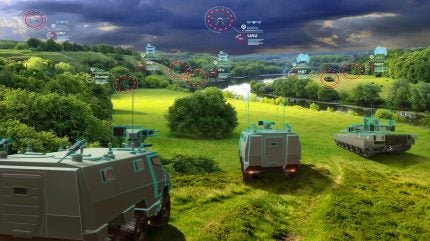
The European Commission (EC) has shown its support for the STORE project by signing the grant agreement.
The project is led by Thales as coordinator of an industry partners consortium comprising 20 partners from eight EU member states and Norway.
These include entities such as France’s ONERA and Safran E&D, Estonia’s Falconers, Marduk and Cybernetica, and Germany’s IOSB, University of Cologne, Rheinmetall Electronics and HENSOLDT Optronics.
Other partners include Austria’s HENSOLDT Analytics and AIT; Italy’s Leonardo, Flysight, UniMore and STAM; Kongsberg, Norway; TNO, the Netherlands; LIST, Luxembourg; and Spain’s GMV.
STORE, backed by the European Defence Fund (EDF), is designed to integrate AI into ground platform imaging systems and establish a shared, secure image database.
The project’s objective is to enhance the automatic management and tactical analysis of information in land combat scenarios through cutting-edge deep learning technologies applied to optronic data.
It spans 36 months at an estimated cost of €23.3m.
Thales Optronics and Missile Electronics vice-president Benoît Plantier said: “We are proud that the EDF is financing this project, which entrusts Thales as project lead and coordinator of this network of partners, European industrial and technological jewels.
“We will leverage all of our experience and expertise in optronics and artificial intelligence to offer high perception capacities, providing decisive tactic superiority on battlefields.”
STORE is set to establish Europe’s first scalable defence imagery database and develop AI algorithms for threat detection, addressing the evolving complexity of modern combat environments.
The project is expected to augment soldiers’ battlefield perception, improve situational awareness and shorten decision-making times, ultimately enhancing survivability.
According to Thales, the growing sophistication of threats such as drone swarms, hypersonic missiles and combat drones means the strategic importance of optronic sensors has never been greater.
Apart from tactical advantages, the project will tackle data governance challenges and foster the cost-effective development of sovereign technologies.



